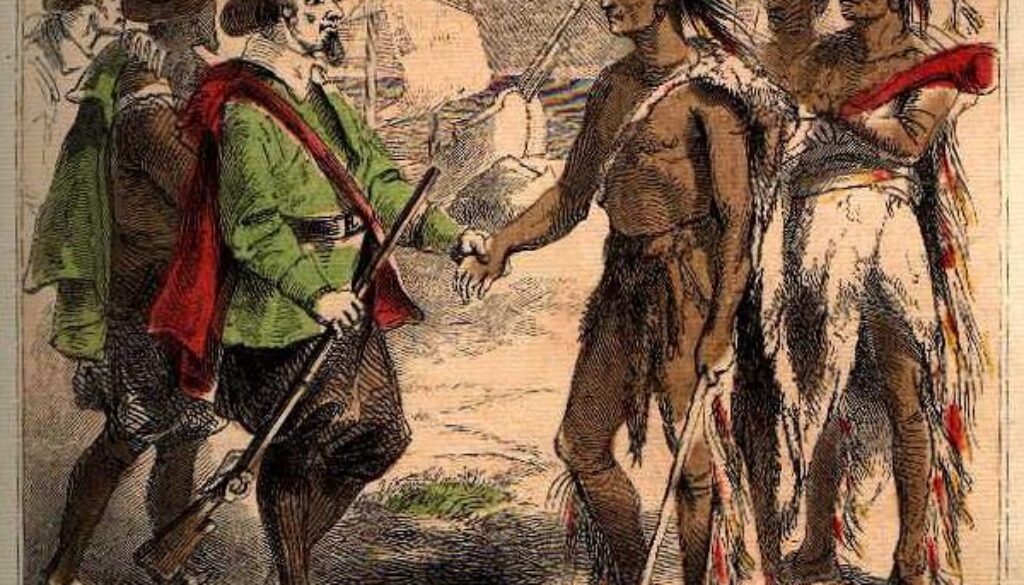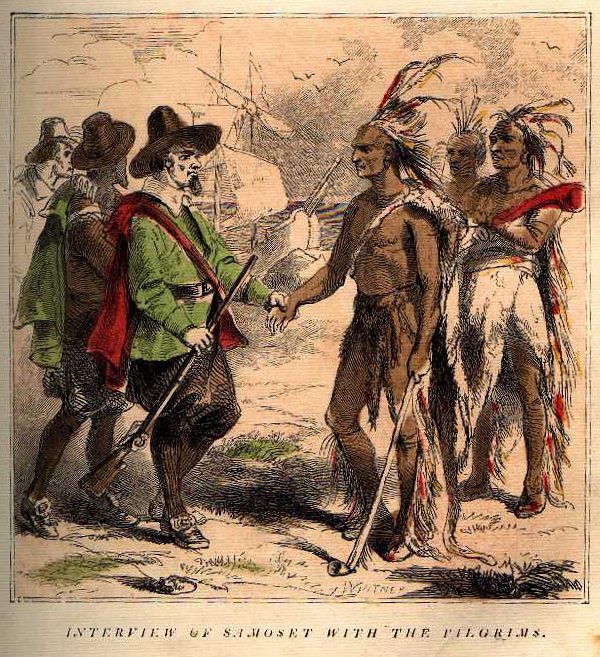Mayflower by Nathaniel Philbrick
I’m having enormous fun with Mayflower by Nathaniel Philbrick, a book presented to me by my cousin Max. Philbrick does just what you want a scholar to do: sort through all the historical sources and give you the gist of the story. I’m really enjoying this book, even though it is dissolving a lot of preconceived ideas I had about the settlement of New England.
For one thing, I have always seen King Philip’s War as purely an unprincipled war of extermination against the Native Americans of New England. It was that, surely, but as Philbrick makes clear, it was precipitated, as so many of these conflicts are, by circumstances unique to the situattion.
Yes, it was the greed of the douchebags in the Plymouth Colony who wanted a port on Narragansett Bay so they could be part of the Triangle Trade — Molasses to Rum to Slaves — but like all events in human history, it was more complicated than that.
Because the Native Americans of New England were human, too, and they had many internal conflicts, dating back to the time of Massasoit, Philip’s father. Massasoit, as we know, saved the Pilgrims of Plymouth from starving, and they repaid him by placing his son’s head on a pike at the entrance to their colony for 40 years. That much is well known.
But it’s hard to argue that the leaders of the Plymouth intentionally precipitated the war when they allowed Philip to sell nearly all his land and buy guns.
What Philbrick’s scholarship shows us is that there were good guys and bad guys on both sides. What most interested me was that there were veterans of the Thirty Years War in Europe who participated in the slaughter of the Pequots in 1637, when even the Indian allies of Massachusetts Bay were disgusted by the slaughter.
But in the historical records department, King Philip’s War actually exceeded the Thirty Years’ War for devastation among the civil population. The concept of slaughtering men, women, and children was brought to America. Particularly tragic was the massacre of the Narragansetts, who had done everything in their power to remain neutral.
Philbrick does a really great job telling the stories of this fascinating era of American history.

